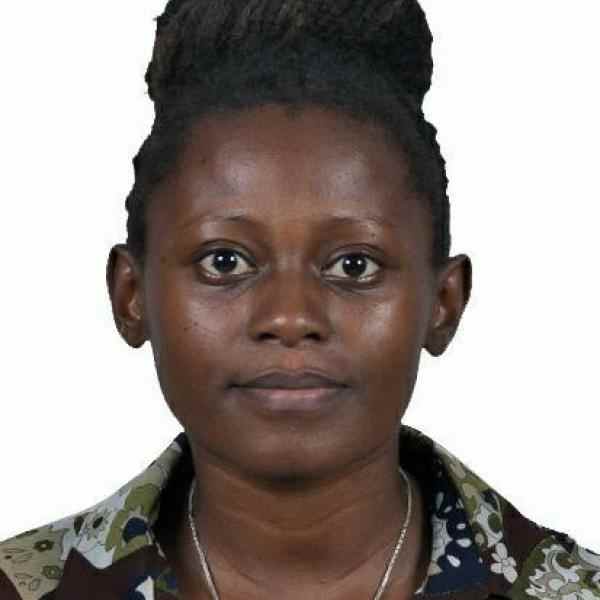Introduction
Janet represents a new era in agricultural development in Tanzania by centering small scale farmers as the key drivers of change. Through the Farmer Training Centre (FTC) and farmer field schools (Vikundis), she is equipping small-scale farmers with practical skills and fostering a culture of peer-to-peer knowledge exchange. Her approach extends to academia, where she has had curriculum reforms at the largest agricultural university in East Africa, shaping a sustainable future for agriculture in the region.
The New Idea
Unlike current approaches supporting farmers to improve crop production that rely on top-down instruction, expensive technology and synthetic fertilizers, Janet's methodology places farmers and their expertise at the forefront, recognizing them as the primary agents of change for new practices that will enhance food production and not destroy the environment. This farmer-centered approach permeates every aspect of Sustainable Agriculture Tanzania’s (SAT) initiatives, from the establishment of the Farmer Training Centre (FTC) to the implementation of farmer field schools (Vikundis) and knowledge exchange platforms.
At the heart of Janet's approach lies the Farmer Training Centre (FTC), a sprawling 100-hectare facility renowned as the largest of its kind in agroecology across Africa, serving as a dynamic hub for hands-on training and experiential learning opportunities. Here, farmers, extension officers among many others from across East Africa converge to engage in practical demonstrations, field experiments, and knowledge-sharing sessions tailored to their needs and contexts. This fosters a culture of continuous learning and innovation with farmers as catalysts for change within their communities. Complementing the FTC are the farmer field groups (Vikundis) established by SAT in 120 villages across Tanzania, where groups of 5-10 small-scale farmers come together, exchange knowledge, and implement agroecological principles in their farming practices. What sets Janet's approach apart is her emphasis on participatory learning and peer-to-peer knowledge sharing within the Vikundis, recognizing the value of farmers' knowledge, and fostering a collaborative learning environment where farmers learn from each other's successes and challenges, diverging from top-down dissemination of information typically seen in extension services.
Moreover, Janet's leadership extends beyond grassroots initiatives, facilitating tangible changes within academia and influencing curriculum reforms at Sokoine University, the largest agricultural university in East Africa. By prioritizing sustainable farming practices, local context understanding, and practical skills development within the university curriculum, Janet ensures that future agricultural professionals are equipped with the necessary tools to effectively address the unique challenges faced by Tanzanian farmers. Janet has also spearheaded the drafting of Tanzania’s national agroecology strategy, which marks a significant milestone in shaping policy for agricultural development.
The Problem
Smallholder farmers in Tanzania face many challenges made worse by systemic issues entrenched within the agricultural sector. A top-down approach to agricultural development perpetuates a cycle of environmental degradation, financial constraints, and limited access to resources and information. Traditional interventions, driven by corporate interests and government initiatives, prioritize the adoption of expensive technology and synthetic inputs, disregarding the invaluable expertise of local farmers and the nuances of regional contexts. Consequently, this approach has caused many problems, including soil degradation, erosion, diminished crop yields, and heightened vulnerability to market fluctuations.
A study conducted by the Tanzanian Ministry of Agriculture unveils a troubling statistic: over 70% of smallholder farmers in Tanzania rely on practices heavily reliant on synthetic inputs that are harmful to the environment. In some areas, annual soil losses amount to 10 tons per hectare, emphasizing the severity of the environmental ramifications. The lack of farmer education and access to the right information amplifies these challenges.
This systemic problem extends beyond the farm to the inadequacy of the education system and curriculum in agricultural universities and colleges. The theoretical orientation of the curriculum fails to equip students with practical skills and an understanding of the challenges encountered by farmers on the ground. Consequently, graduates often enter the agricultural workforce ill-prepared to address farmer problems effectively, perpetuating the cycle of inefficiency and disconnect between academia and on-the-ground agricultural practices.
The convergence of these challenges not only highlights a pressing social concern but also poses a fundamental threat to food security and environmental sustainability in Tanzania.
The Strategy
Janet’s strategy is deeply rooted in a farmer-centered approach representing a shift in agricultural practices within Tanzania. This approach is designed to transcend current notions of agricultural development, having farmers not as passive recipients but as active participants in this movement leading this change.
Janet started her journey with the formation of a robust core network of farmers, which served as the foundation for the establishment and evolution of the Farmer Training Center (FTC). Drawing upon the expertise and insights gained from this network, FTC nurtures sustainable and organic agricultural solutions tailored specifically to the needs of small-scale farmers. Over a decade, SAT meticulously cultivated this network, leveraging the collective wisdom and experience of farmers at the forefront of adopting these agricultural practices. This core farmer network not only provided valuable knowledge but also served as a catalyst for the development of FTC into a pivotal platform for knowledge exchange and skill enhancement. Through this collaborative approach, Janet has ensured that FTC's initiatives were firmly rooted in the realities and challenges faced by farmers on the ground, thus fostering a culture of practicality and relevance in sustainable agricultural development.
FTC is committed to experiential learning offering immersive educational experiences that solidify participants' grasp of agroecological principles. Facilitated by Janet's dedicated team, comprehensive training modules cover a wide spectrum of agroecological practices, ensuring participants acquire practical proficiencies relevant to real-world farming scenarios. Serving as a living laboratory, the FTC farm showcases demonstrations encompassing agroforestry, permaculture, rainfed systems, soil and water management, livestock management and more.
Currently, the training center has successfully trained over 10000 farmers and other professionals. Additionally, FTC has extended its expertise in organic certification by collaborating with farmers to foster organic value chains and advocate for sustainable living practices. Forging partnerships with esteemed institutions like Sokoine University of Agriculture and Sheffield University, FTC fosters collaborative endeavors in research and knowledge dissemination.
Complimenting FTC, Janet actively facilitates the establishment of farmer field groups known as vikundis. These vikundis serve as close-knit communities of farmers, fostering a collaborative environment where members engage in peer-to-peer learning, share experiences, and collectively adopt sustainable agroecological practices. This peer-to-peer learning model allows farmers to learn from each other's successes and challenges, leading to a deeper understanding of sustainable agricultural practices and innovative farming techniques. Moreover, the formation of vikundis promotes community solidarity among farmers. By working together vikundi members develop a sense of camaraderie and mutual support within their communities. Through structured meetings, field demonstrations, and capacity-building workshops, vikundi members take ownership of their agricultural practices, driving positive change within their communities and embodying the grassroots approach to sustainable agricultural development, where local farmers are empowered to lead their own transformative journey towards more resilient and environmentally friendly farming practices. The monthly distribution of the Mkulima Mbunifu Magazine, reaching over 90,000 people, currently serves as a crucial platform for continuous learning, providing practical insights and innovative solutions to agricultural challenges.
Recognizing the interconnected nature of agricultural development, Janet adopts a holistic approach that extends beyond mere productivity concerns through these vikundis. Environmental sustainability is prioritized through the promotion of climate-resilient practices such as energy-saving stoves, reforestation efforts, supporting young people in agriculture and promoting gender equality through the distribution of livestock assets. Economic sustainability is fostered through the establishment of saving and lending groups, providing farmers with access to credit and financial resilience.
Janet has also spearheaded transformative initiatives within academia informed by their learning from these farmers. At Sokoine University, her influence has been instrumental in substantial curriculum reforms, reshaping the agricultural education landscape to prioritize sustainability, local context awareness, and practical skill acquisition. By infusing these essential elements into the university's agricultural curriculum, Janet ensures that future professionals are not only well-versed in theoretical concepts but also proficient in applying them to practical agricultural needs on the ground. Partnering with Sokoine University, a beacon of agricultural education in East Africa, has set a precedent for other institutions to follow suit. 120 agricultural institutes and universities in Tanzania, Uganda and Kenya have currently taken up this curricula. The integration of organic farming, agroecology, and gender in agriculture courses in the curriculum has been transformational.
Furthermore, Janet's leadership extends beyond academia to the realm of policymaking, where she has led SAT in playing a pivotal role in drafting Tanzania’s ecological organic agriculture strategy. This strategy represents a watershed moment in Tanzania's agricultural policy landscape, signaling a paradigm shift towards holistic and ecologically sound approaches to farming. Janet is currently working with partners in Kenya, Ethiopia, and Burundi to help do the same, leading to regional change.
Her research has also propelled scientific advancement and advocates evidence-based agricultural practices. The completion of 14 pioneering research projects on crops and livestock significantly contributes to the evolution of sustainable farming techniques. Collaboration has been fundamental to disseminating this research, leveraging the collective resources of diverse stakeholders like the Ministries of Agriculture and Education, media houses and publications. Through collaborative efforts, Janet aims to amplify its impact and foster a more cohesive and responsive agricultural ecosystem in Tanzania and beyond.
The Person
Janet’s journey began in humble beginnings in the Old-Moshi District of Kilimanjaro region. Janet's early years were shaped by the close-knit bonds of her large extended family and rural life. She was raised primarily by her mother, a dedicated organic farmer in the traditional Chagga homegardens. Her upbringing in a big farming community was characterized by shared responsibilities and a deep appreciation for the land.
From a young age, Janet displayed a keen interest in education, eagerly accompanying school children to school even at the tender age of two. This early exposure sparked her lifelong passion for learning and education. Growing up on a farm, Janet developed a profound love for agriculture, spending her childhood days tending to crops like maize, beans, yams, coffee, bananas, and sweet potatoes alongside her mother, grandmother and great-grandmother. This hands-on experience instilled in her valuable lessons about resilience, resourcefulness, and the interconnectedness of nature. She also at a very young age displayed her entrepreneurship skills through the sale of the produce from their farm at the local market which contributed to her school fees.
Despite the demands of her studies and traveling for school, Janet regularly returned home to assist her mother on the farm. Transitioning into higher education, Janet pursued a Bachelor of Science in Agriculture, Economics, and Agribusiness at Sokoine University of Agriculture. Here she served as a student leader for three years and co-founded the Tanzania Youth Environmental Network which engages Tanzanian youth in environmental conservation through awareness campaigns, clean-up initiatives and policy advocacy.
While at university, Janet recognized the disparity between what she was learning, and the real struggles faced by farmers. Intrigued by this gap, she ventured into the Uluguru mountains, where she actively listened to farmers' challenges and experiences. Armed with this firsthand knowledge, Janet began crafting solutions tailored to their needs. She initiated lessons on sustainable farming practices, including the implementation of terraces, composting and other techniques to combat soil erosion. Janet approached her lecturers seeking to initiate a discussion on practical solutions but encountered skepticism and resistance. Determined, she didn't give up, she turned down job offers, opting instead to work on implementing sustainable farming practices in her community, inspiring farmers to adopt similar methods.
In 2011, Janet founded Sustainable Agriculture Tanzania (SAT), an umbrella organization that acts as the main center for organic and sustainable agriculture in Tanzania focused on revolutionizing farming practices in Tanzania. Janet’s work has gained attention featuring in National Geographic’s “The Next Green Revolution” issue



